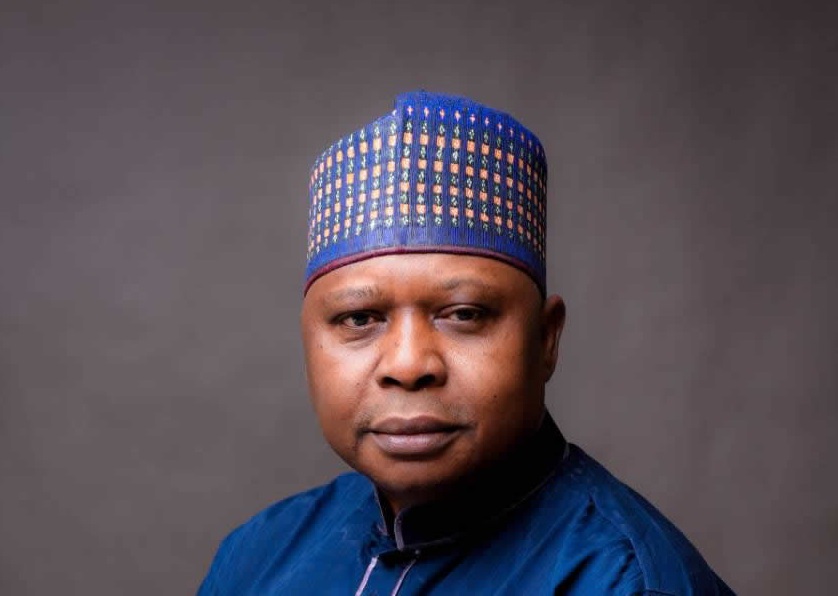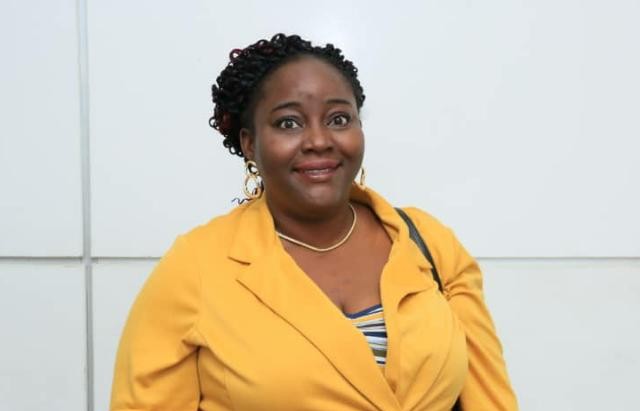At a time when the Peoples Democratic Party (PDP) stands at a crossroads, seeking both direction and renewal, the search for a leader capable of uniting its fractured ranks, restoring confidence, and repositioning the party for future victories has become a matter of urgent necessity. In the evolving landscape of Nigerian politics, where credibility, loyalty, and vision have become scarce commodities, one name continues to emerge as the most capable and credible bridge to the future — Kabiru Tanimu Turaki, SAN. His political maturity, tested loyalty, legal brilliance, and reformist disposition mark him out as the ideal figure to lead the PDP into a new era of rebirth and relevance.
Since its formation in 1998, the PDP has held a dominant place in Nigeria’s democratic journey. For sixteen years, it provided governance, stability, and a sense of direction for the nation. However, the years following its loss of power in 2015 have not been easy. The party has been confronted by internal divisions, leadership crises, waves of defections, and the challenge of regaining public trust. These realities have created a deep yearning among party faithful for a leader with both the moral authority and intellectual capacity to heal wounds and lead a genuine process of reform.
Tanimu Turaki represents that hope — a steady, thoughtful, and unifying figure whose political life has been defined by loyalty, integrity, and the pursuit of justice.
Tanimu Turaki is not just another politician seeking office; he is a man who has lived the ideals the PDP was founded upon. From the days when the party was building its foundation as a broad-based national movement, he was part of the loyal vanguard that believed in inclusiveness, fairness, and development-driven leadership. Through political transitions and ideological storms, he remained steadfast, never defecting or abandoning the party, even when it was politically inconvenient to stay.
In an era when political loyalty has become transactional, his consistency speaks volumes. It reflects a man driven not by personal ambition but by conviction in the PDP’s founding vision as a platform for national unity, progress, and social justice.
As a Senior Advocate of Nigeria and accomplished lawyer, Turaki has built a reputation for intellectual depth and principled leadership. His legal career is a testimony to his commitment to justice, due process, and good governance. In his years of public service, he demonstrated an enviable capacity for balancing firmness with fairness — a quality that will serve the PDP well as it seeks to reconcile aggrieved members and re-establish internal harmony. Turaki’s understanding of institutional management and constitutional order makes him the perfect candidate to strengthen the PDP’s internal democracy and rebuild confidence in its leadership organs.
In addition to his professional accomplishments, Turaki’s leadership record in public office stands as evidence of competence and accountability. As a minister and member of the Federal Executive Council, he served with integrity and distinction, never tainted by scandal or controversy. His time in government was marked by diligence, fairness, and a genuine commitment to national development. He carried himself as a statesman, not a partisan actor — a quality that has earned him respect across political divides. Today, many within and outside the PDP recognise that his brand of leadership is what the party desperately needs: ethical, inclusive, transparent, and forward-looking.
The PDP, more than ever, needs a leader who can build bridges — not walls. Tanimu Turaki’s strength lies in his ability to listen, engage, and reconcile. He has proven himself as a consensus builder who understands that the survival of the party depends on the unity of its diverse stakeholders. His calm temperament and diplomatic skill make him uniquely qualified to mediate between competing interests and bring back estranged members who have left the party. The PDP’s future success depends not only on its ability to win elections but on its capacity to present a united front, and Turaki’s leadership promises to achieve precisely that.
Beyond reconciliation, the PDP also needs a reformer who can modernise its structures and restore its institutional credibility. For too long, the party has been weighed down by outdated administrative methods and poor coordination between its national, state, and local chapters. Turaki’s vision to digitalise the membership database, institutionalise data-driven decision-making, and embrace modern communication tools will reposition the PDP as a modern political institution. He understands that in the digital age, a party must evolve or risk irrelevance. His reform agenda will ensure transparency in membership registration, improve accountability in internal processes, and create room for active youth participation — an essential ingredient for the PDP’s revival.
One of the defining features of Turaki’s political philosophy is inclusion. He believes that for the PDP to regain its strength, it must give meaningful space to young people and women who constitute the bulk of the electorate. His commitment to gender balance is not rhetorical; it reflects his conviction that sustainable political progress depends on giving everyone an equal chance to lead and contribute. Under his leadership, the PDP can expect to see an increase in youth representation at decision-making levels, mentorship programmes for emerging politicians, and deliberate empowerment policies aimed at deepening democratic participation.
Furthermore, Tanimu Turaki’s understanding of Nigeria’s diverse political realities gives him an advantage that few others possess. Having worked and interacted across the six geopolitical zones, he appreciates the complexities of Nigeria’s federal structure and the sensitivities that shape political behaviour across regions. His outlook is national, not sectional. He is respected in the North, trusted in the South, and admired by Nigerians who desire leaders that transcend ethnic and religious barriers. In a time when politics has become dangerously polarised, the PDP cannot afford to elect a chairman whose appeal is limited to a particular region or group. Turaki’s national outlook and moderate disposition position him as the only candidate who can unify the party’s diverse base and restore its image as a truly pan-Nigerian organisation.
In the history of the PDP, leadership has often determined the party’s direction. The rise and fall of the party have been shaped by the quality of those who led it at critical moments. When visionary leaders guided it, the PDP soared; when self-serving individuals took over, the party stumbled. Today, with the challenges of internal wrangling, public distrust, and electoral setbacks, the PDP cannot afford another leadership experiment. It needs a leader who commands respect, embodies integrity, and inspires hope. Kabiru Tanimu Turaki fits this description. His calm but firm leadership style, his commitment to fairness, and his ability to maintain relationships across political divides give him the moral capital to rebuild the PDP’s brand.
In assessing who can best lead the PDP to its next phase, character becomes as important as competence. Turaki’s character is one of humility and integrity. He has consistently shown restraint in public discourse, preferring dialogue to confrontation and persuasion to coercion. He has no record of political vindictiveness or divisive rhetoric. Instead, he has earned a reputation for building consensus and resolving conflicts peacefully. This temperament is critical for a party that must now reconcile competing blocs and restore the confidence of members who have become disillusioned.
Equally important is Turaki’s clear sense of vision. He envisions a PDP that returns to its founding principles of democracy, justice, and service to the people. He believes the party must once again become the voice of the common man, the defender of federal balance, and the platform for credible leadership recruitment.
His agenda is not just to win elections but to rebuild the PDP as an institution rooted in values. Under his leadership, transparency in candidate selection, merit in appointments, and accountability in resource management will become non-negotiable standards. He understands that credibility is the currency of modern politics, and he is determined to make the PDP earn it again.
The process of rebuilding a political party is not a sprint; it is a marathon. It requires patience, vision, and integrity. Turaki’s leadership experience, both in politics and public administration, has prepared him for this responsibility. As a former minister and respected public servant, he understands how systems work and how institutions can be reformed. His approach to leadership is strategic and people-oriented. He is not driven by showmanship or personal ambition but by a genuine desire to leave a lasting legacy of reform and unity.
Reforming the PDP also means confronting the mistakes of the past. Turaki has never shied away from acknowledging where the party went wrong. He has often emphasised that the PDP must learn from its history — its successes and its failures — if it must remain relevant in Nigeria’s democratic journey. His humility in accepting collective responsibility and his sincerity in proposing corrective measures distinguish him from typical politicians. He is not looking for excuses but for solutions. He is not out to assign blame but to chart a new course that places the people at the centre of the PDP’s politics.
What makes Tanimu Turaki’s candidature even more compelling is his reputation beyond the party. He enjoys respect across Nigeria’s political and civil landscape. His calm disposition, intellect, and integrity have earned him admiration among professionals, civil society leaders, and even members of rival political parties. His national recognition as a Senior Advocate of Nigeria further underscores his intellectual credibility and professional achievement. These qualities will not only help him strengthen internal party administration but also enhance the PDP’s image in the eyes of the Nigerian public.
The coming years will define the PDP’s future. Nigeria’s democracy needs a strong opposition party that can hold government accountable, provide alternative ideas, and represent the aspirations of millions of citizens. For the PDP to play this role effectively, it must first put its house in order. That requires a leader who combines the wisdom of experience with the energy of reform. Tanimu Turaki offers both. His leadership will bring an end to factionalism, foster ideological clarity, and restore the PDP’s capacity to contest and win elections on the strength of ideas and performance.
There is also a moral dimension to Turaki’s leadership. At a time when Nigerians are yearning for leaders of integrity and competence, his elevation as PDP National Chairman would send a strong signal that the party has learnt its lessons and is ready to return to ethical and purposeful leadership. It will rekindle public confidence and attract back Nigerians who once believed in the PDP’s promise but were disappointed by the behaviour of some past leaders. Turaki’s emergence would mark a turning point — a statement that the PDP is ready for renewal and that credibility once again matters in its leadership selection.
In the final analysis, the rebirth of the PDP requires more than rhetoric; it requires leadership that can heal, rebuild, and reform.
It demands a man who understands the value of loyalty, the essence of justice, and the importance of unity. Kabiru Tanimu Turaki, SAN, embodies all these qualities. He has the mind of a reformer, the heart of a bridge-builder, and the hands of a steady leader. His life story reflects consistency and conviction; his vision reflects renewal and inclusiveness; his leadership style reflects humility and fairness.
For the PDP to reclaim its place as Nigeria’s leading political institution, it must choose a leader who represents its best values and inspires confidence across all divides. Turaki is that leader. His emergence as national chairman would not only mark a new chapter for the PDP but also for Nigeria’s democracy — a chapter defined by integrity, inclusiveness, and renewal. The party’s rebirth depends on the courage to embrace change, and that change begins with choosing a man who holds the key to its future. Kabiru Tanimu Turaki is that man — the bridge between the past and the promise of tomorrow, the leader who can guide the PDP from turbulence to triumph and from decline to rebirth.
Agu, a political analyst, is based in Abuja.






